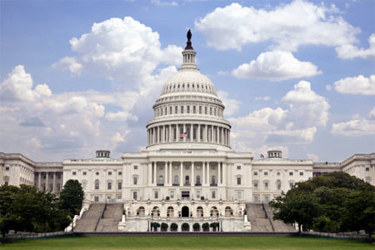BIOSECURE Act Passes House. How Will It Impact Your Outsourcing?

By Louis Garguilo, Chief Editor, Outsourced Pharma

The U.S. House of Representatives was hell-bent on sending a message to China – and frankly all of us in the biopharma industry.
Congress hopes that message – and real-life consequences – will be accomplished via the passing of the BIOSECURE Act that (eventually, and with stipulations) alters your discovery, development and manufacturing outsourcing optionality.
Only in June, the Act failed to make the House Rules Committee for consideration in the National Defense Authorization Act (NDAA) for Fiscal Year 2025.
But the following month, House Speaker Mike Johnson (R-La.) gave a full-throated guarantee he’d resurrect the Act.
True to his word, he brought it to a full vote of the House floor yesterday.
The bipartisan tally: 306 to 81 in favor.
The goal of roping in nefarious activities of the Communist China Party is a good one, but as I’ve postulated over many editorials, the problem is that this is the wrong legislation.
That is, it includes without substantiation leading China-based CDMO WuXi Apptec.
Although originally not a target of the legislation, WuXi and other named companies are, in words of the legislation, considered in collusion and collaborating with the Chinese Communist Party, by passing on its customers’ intellectual property.
I will not relitigate this case here, but will point readers to a list of prior editorials on our homepage.
As I’ve done throughout this saga (and which the U.S. government has refused to do), I reached out to WuXi Apptec for comment. Here’s their response (in full and as received):
“WuXi AppTec is disappointed in the House’s vote on the proposed BIOSECURE Act, which pre-emptively and unjustifiably designates our company without due process. We operate in a highly regulated industry and fully comply with the strict compliance, oversight and inspection requirements of our customers, government regulators, and other agencies in the U.S. and elsewhere.
We and many across the pharmaceutical and life sciences industry are deeply concerned about the legislation’s impact on U.S. leadership in biotechnology innovation, drug development, and patient care, as well as the implications for the costs of care and life-saving and other vital medications. Key Representatives have acknowledged these concerns, echoing views of Senators who have voiced their own reservations. Recognizing that the House vote was just another step in an ongoing legislative process, we are hopeful that the proposed legislation will not move forward without appropriate revisions that address these serious consequences.”
Truth And Consequences
Among those consequences, according to the thoughts of numerous biopharma executives at organizations of all sizes, the Act foremost:
- Artificially forces supply-chain reconfigurations –whether for the good of drug/therapy programs or not
- Effectively withdraws a vital piece of (global) outsourcing optionality from U.S.-based biotechs (and others)
Regarding the first bullet, minimizing elongated supply chains is a fine objective – should equally reliable options be available.
Of course the hope of legislators is that this government fiat aids reshoring efforts by U.S.-based biotechs, and bolsters contract service organizations here.
Again, worthy in the abstract.
But as Reza Oliyai, CEO, Oliyai Consulting, put it in a recent editorial, it's important to recognize that WuXi AppTec and other Chinese CDMOs have been extremely successful in building infrastructure in different modalities across the globe.
In fact, WuXi has vast and impressive assets in the U.S. As noted earlier, WuXi has worked with state and local authorities to build labs and large-scale, advanced facilities in the U.S., including locations in:
- California
- Georgia
- Massachussetts
- New Jersey
- Pennsylvania
- Texas
Emerging biotech centers such as in King of Prussia, Pennslyvania, are richly enhanced by landing a WuXi facility.
Are these now seen as facilities non grata for the U.S. biopharma industry?
Oliyai, who has three decades of experience at Gilead prior to forming his consulting company, added that we, as an industry, cannot simply overlook the efforts and investments of WuXi and other Chinese CDMOs, “and their global footprint.”
“WuXi has excelled in training high-quality scientists and maintaining a modality-agnostic approach within their infrastructure,” said Oliyai. “This is something we should all recognize.
“Other CDMOs should not lose sight of the strategic investments WuXi has made in this infrastructure. Technologies and modalities are becoming more complex, and CDMOs must continue to invest.
"Don't think, 'We should come out of this stronger.' It would be a big mistake. Don't rely on the BIOSECURE Act as a lifeline. Invest in your business; invest in your people."
Where It Goes From Here
The world according to biopharma outsourcing is not ending, although there is a palpable upending involved here.
Globalization continues, as does reshoring. They are not incompatable.
Nonetheless, you’ve been tossed into a cold-war struggle between the U.S. (and other Western nations) and China. And although the BIOSECURE Act provides a number of years before enumerated provisions kick in, you will need to make important outsourcing decisions now, as well as in the future.
There's also this: Is in fact any of this good for patients? For the U.S. biotech industry?
It’ll be hard to measure, but we should try to assess results and repercussions. And we should continue to ask for proof of the allegations against WuXi Aptec.
Protecting U.S.-derived IP and our biotech industry is noble. But we deserve to know if this is the right path with the correct targets.
